top crime movies with great soundtracks
Explore a curated list of crime movies renowned not only for their gripping narratives but also for their unforgettable soundtracks. These films blend storytelling with music to create iconic cinematic experiences.
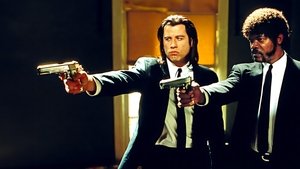
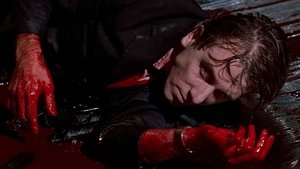

Crime movies have long been a fertile ground for memorable soundtracks that elevate tension, mood, and character development. From Quentin Tarantino's legendary use of eclectic tracks in "Pulp Fiction" to the pulsating synthwave beats of "Drive," music often becomes a character itself in these films. For instance, "Baby Driver" uniquely integrates its soundtrack into the very fabric of its storytelling, synchronizing every action to the beat of its eclectic playlist. Meanwhile, classics like "GoodFellas" and "The Godfather" use period-specific tracks to immerse viewers deeply into their eras, enhancing the authenticity of their crime worlds.
It’s fascinating how directors like Martin Scorsese and David Fincher carefully select songs that reflect the psychology of their characters, such as the haunting melodies in "Fight Club" or the edgy rock tunes in "American Psycho." Moreover, films like "Trainspotting" and "Snatch" showcase how soundtracks can capture the rebellious spirit and gritty energy of their stories. The influence of electronic and rock music in movies like "Heat" and "Reservoir Dogs" also highlights the diversity of sounds that can complement the crime genre.
This list is a testament to how a great soundtrack can transform a crime movie from a mere thriller into an immersive sensory experience, making these films resonate long after the credits roll.
14. The Godfather (1972)
Francis Ford Coppola's The Godfather is a cinematic masterpiece and the quintessential gangster film. While it features an iconic and beloved score by Nino Rota, its musical identity is different from the curated song-based soundtracks of many other films on this list. Rota's score, particularly the main theme (a melancholic trumpet melody), is deeply interwoven with the film's themes of family, tradition, tragedy, and the immigrant experience.
The score evokes a sense of old-world Italian melancholy and grandeur, perfectly fitting the Corleone family's story. Although Rota's theme was disqualified from Oscar consideration because he had used a similar theme in an earlier Italian film, it remains one of the most recognizable and enduring film scores ever composed.
While the film doesn't rely on popular music needle drops, the power and emotional depth of Rota's score make it a cornerstone of the film's lasting impact and its portrayal of a criminal empire.
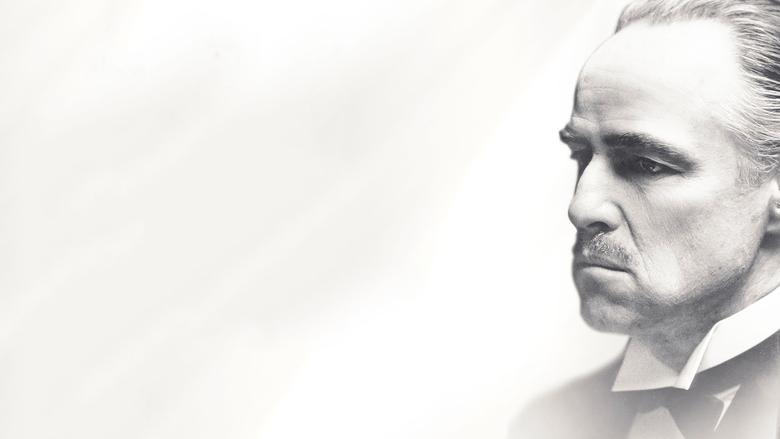
13. A Clockwork Orange (1971)
Stanley Kubrick's A Clockwork Orange is a disturbing and satirical look at free will and social control, featuring unforgettable imagery and a highly distinctive use of music. While its crime element is tied to protagonist Alex's ultra-violence, the soundtrack is a crucial, and often unsettling, component.
Kubrick primarily used classical music, particularly the work of Beethoven, which Alex adores. However, much of the score consists of electronic interpretations and arrangements of classical pieces by Wendy Carlos (then Walter Carlos), pioneering the use of the Moog synthesizer to create futuristic and eerie sounds.
The juxtaposition of the refined classical music (or its synthesized versions) with the film's brutal content is deliberately jarring, highlighting Alex's twisted appreciation for art and the film's themes of order and chaos. It's a soundtrack that is as challenging and thought-provoking as the film itself.

12. The Departed (2006)
Martin Scorsese's Oscar-winning crime thriller The Departed, set in the world of Irish mobsters and undercover cops in Boston, features a soundtrack that is very much a product of its specific time and place. Reflecting the film's gritty, rock-and-roll energy, the music leans heavily on classic rock and alternative tracks.
Artists featured include The Rolling Stones, Led Zeppelin, Pink Floyd, The Beach Boys, and Dropkick Murphys, the latter grounding the film firmly in its Boston Irish setting. Howard Shore provided the atmospheric score, but it's the needle drops that often stand out, adding commentary or driving the pace of key scenes.
The soundtrack captures the film's tense, double-crossing narrative and its themes of identity and betrayal, using familiar rock anthems to underscore the chaotic and dangerous lives of the characters caught on both sides of the law.
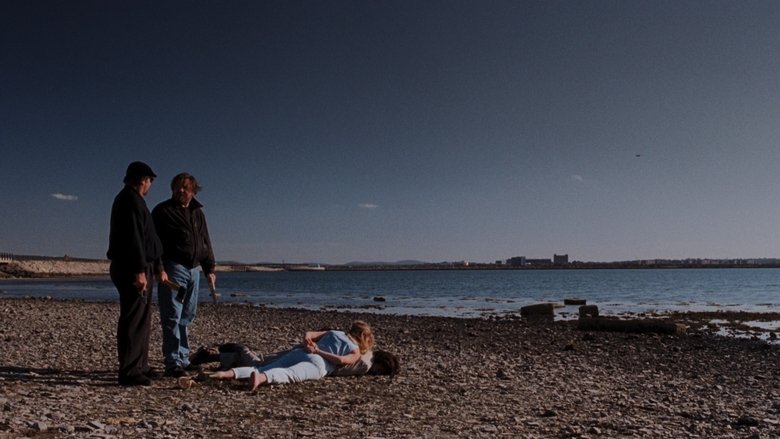
11. Heat (1995)
Michael Mann's Heat is a sprawling, intense crime epic featuring iconic performances from Al Pacino and Robert De Niro. The film's atmosphere is heavily influenced by its score and soundtrack, which blend electronic music, ambient sounds, and classical pieces to create a sense of urban isolation and simmering tension.
Composer Elliot Goldenthal provided the main score, but the film also features tracks from influential artists like Brian Eno, U2 (with Brian Eno as Passengers), and Moby. Mann meticulously selected and placed these pieces to underscore the film's themes of loneliness, professionalism, and the stark reality of the criminal world.
The music contributes significantly to the film's cool, detached aesthetic and its moments of explosive violence, helping to build the palpable sense of dread and the high stakes involved in the cat-and-mouse game between the detective and the thief.
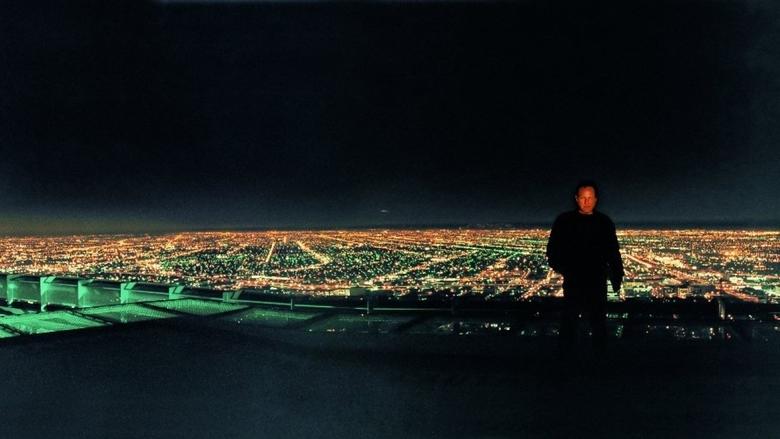
10. GoodFellas (1990)
Martin Scorsese's GoodFellas is arguably one of the greatest gangster films ever made, a visceral, dynamic look at the rise and fall of mob life. Music plays a huge role in Scorsese's films, and GoodFellas is no exception, utilizing a fantastic selection of popular music from the 1950s, 60s, and 70s.
Instead of a traditional score, Scorsese licensed over 100 different tracks, using them to place the audience firmly in the time period and reflect the characters' moods and the changing times. Songs by artists like Tony Bennett, The Crystals, Aretha Franklin, and Derek and the Dominos punctuate scenes, often in surprising or ironic ways.
The famous sequence tracking Henry Hill entering the Copacabana through the back kitchen, set to The Crystals' 'Then He Kissed Me', is a prime example of Scorsese using music and camerawork to convey glamour and access. The soundtrack is a character in itself, charting the emotional and historical landscape of the story.

9. Blade Runner (1982)
Ridley Scott's Blade Runner is a landmark of science fiction and neo-noir, set in a dystopian future Los Angeles. While primarily sci-fi, its themes and aesthetics borrow heavily from hardboiled crime fiction. Vangelis's legendary electronic score is absolutely crucial to creating the film's haunting, rain-soaked, and atmospheric world.
Composed almost entirely on synthesizers, the score is moody, melancholic, and futuristic, perfectly capturing the film's sense of urban decay, technological alienation, and existential questioning. Tracks like 'Tears in Rain' are deeply emotional and iconic, becoming inseparable from the film's visual identity.
Vangelis created the score improvising while watching the film's footage, a process that resulted in a deeply intuitive and atmospheric sound. Despite initial delays in its official release, the score has become one of the most celebrated and influential in cinema history, defining the sound of cyberpunk.

8. Fight Club (1999)
David Fincher's Fight Club blurs the lines between crime, thriller, and social commentary, and its unique soundtrack by The Dust Brothers is perfectly suited to its anarchic, disorienting tone. Composed primarily of electronic beats, loops, and industrial sounds, the score creates a sense of urban decay, psychological fragmentation, and rebellious energy.
The Dust Brothers, known for their sample-heavy production, crafted a soundscape that feels both mechanical and organic, mirroring the film's themes of identity, consumerism, and rebellion against the mundane. The score is integral to building the film's distinctive atmosphere and escalating tension.
Fincher opted for The Dust Brothers after being impressed by their work on Beastie Boys albums, wanting something unconventional that avoided traditional orchestral sounds. The result is a score that is as iconic and unsettling as the film itself, perfectly capturing its anti-establishment spirit.

7. American Psycho (2000)
While not a traditional 'crime' film in the heist or gangster sense, American Psycho delves deep into the criminal mind of Patrick Bateman, a wealthy investment banker with a secret life as a serial killer. Music plays a fascinating and disturbing role in the film, particularly the pop music of the late 1980s.
Bateman delivers lengthy, obsessive monologues about artists like Huey Lewis and The News, Whitney Houston, and Genesis, dissecting their music with a chilling intensity that contrasts sharply with his horrific actions. These scenes are darkly comedic and reveal the superficiality and pathology behind his polished exterior.
The soundtrack album compiles many of these discussed tracks, along with the atmospheric score by John Cale. The film's use of music isn't just for mood; it's a narrative device that highlights Bateman's superficiality, his desperate need to conform, and the era's consumerist excess. It's unsettling and brilliant.

6. Snatch (2000)
Guy Ritchie's Snatch is a fast-paced, witty crime caper with a tangled plot and a memorable ensemble cast. Much like his other early films, the soundtrack is key to establishing its kinetic energy and distinct London underworld atmosphere. The music blends various genres, including rock, electronic, and hip-hop, often used to punctuate the film's rapid-fire editing and overlapping storylines.
The score features contributions from artists like Overseer, Madonna (Guy Ritchie's wife at the time), and even traditional Irish folk elements, reflecting the diverse characters and settings. The use of specific tracks during character introductions or key plot points adds a layer of cool swagger and often dark humor to the proceedings.
It's a soundtrack that bounces along with the film's chaotic energy, pulling you into its world of bare-knuckle boxers, diamond heists, and general criminal mayhem.
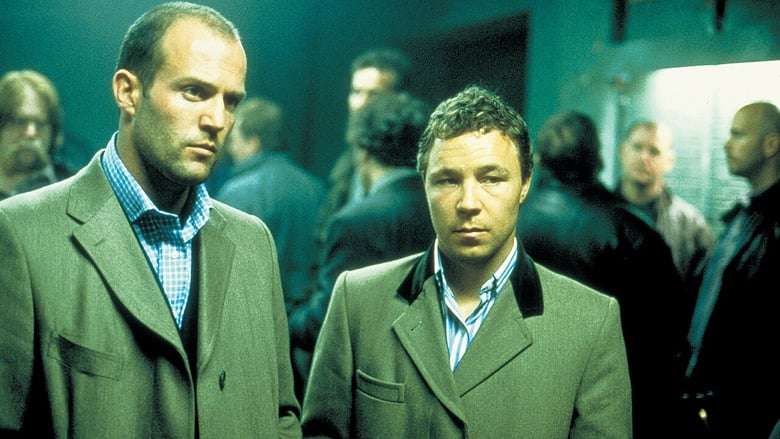
5. Trainspotting (1996)
Danny Boyle's Trainspotting is a raw, energetic portrayal of addiction and friendship, and its soundtrack is an absolute legend of 90s cinema. Featuring a who's who of Britpop, electronic, and alternative artists like Iggy Pop, Underworld, Lou Reed, Blur, Pulp, and Primal Scream, the music is as essential to the film's identity as its unforgettable characters.
The opening sequence, set to Iggy Pop's 'Lust for Life', is instantly iconic, perfectly capturing the film's rebellious, frantic spirit. Underworld's 'Born Slippy .NUXX' provides the anthemic, melancholic backdrop for the film's powerful conclusion, solidifying its place as a defining track of the era.
The soundtrack album was a massive commercial success, introducing many viewers to these artists and becoming synonymous with the film's depiction of counter-culture life in Edinburgh. It's a perfect storm of film and music.

4. Reservoir Dogs (1992)
Before Pulp Fiction, Quentin Tarantino burst onto the scene with Reservoir Dogs, a gritty, dialogue-driven crime thriller that also boasts a fantastic and memorable soundtrack. Like his later work, Tarantino used a curated selection of existing songs, framed as the fictional 'K-Billy's Super Sounds of the Seventies Weekend'.
The most famous example, of course, is the chilling sequence set to Stealers Wheel's 'Stuck in the Middle with You'. The juxtaposition of the catchy, upbeat tune with the brutal on-screen action is deliberately unsettling and has become one of cinema's most iconic and debated scenes.
The soundtrack perfectly captures the film's gritty, retro vibe and adds a layer of dark humor and irony to the unfolding chaos. It cemented Tarantino's style of using pop music as a powerful narrative and atmospheric tool.

3. Pulp Fiction (1994)
Quentin Tarantino didn't just make a crime movie; he crafted a cultural phenomenon with Pulp Fiction. And a huge part of its enduring cool factor is its legendary soundtrack. Eschewing a traditional score, Tarantino compiled an eclectic mix of surf rock, soul, R&B, and pop that feels both nostalgic and utterly fresh.
Songs like Dick Dale's 'Misirlou' (which opens the film with that unforgettable guitar riff), Chuck Berry's 'You Never Can Tell' (immortalized by the iconic dance scene), and Urge Overkill's cover of Neil Diamond's 'Girl, You'll Be a Woman Soon' aren't just background music; they're characters in themselves, perfectly matched to the film's offbeat energy and non-linear storytelling.
The soundtrack album was a massive hit in its own right, proving just how integral the music was to the film's identity and its impact on pop culture. It's a masterclass in using existing tracks to define a film's soul.

2. Drive (2011)
Drive is a masterclass in mood and atmosphere, and its synth-heavy, ethereal soundtrack is absolutely central to that. Cliff Martinez's score, combined with original songs by Kavinsky, College, and Desire, creates a hypnotic, melancholy soundscape that perfectly complements the film's stylish, neo-noir aesthetic and its stoic, mysterious protagonist.
Director Nicolas Winding Refn wanted the music to feel like a fairy tale, dark and dreamlike, rather than a typical action score. The iconic track 'Nightcall' by Kavinsky, featured prominently in the opening, instantly sets the tone for the film's cool, detached, yet deeply emotional journey.
This is a film where the silence speaks volumes, but when the music swells, it hits you right in the gut, making Drive's soundtrack as unforgettable as its golden scorpion jacket.

1. Baby Driver (2017)
Prepare for a high-octane thrill ride perfectly synchronized to its killer beat! Edgar Wright's Baby Driver isn't just a crime flick with a good soundtrack; the music is the engine, the choreography, and the very pulse of the film. Every car chase, every shootout, every step is timed to the carefully curated playlist Baby listens to constantly to drown out his tinnitus.
The soundtrack features an incredible mix of genres and eras, from classic rock like The Damned and Queen to soul hits from Sam & Dave and Carla Thomas, plus modern tracks. Wright edited the film to the rhythm of the songs he intended to use from the scripting stage, a monumental task that gives the movie a truly unique, musical energy. Ansel Elgort even learned sign language for the role, adding another layer to his character's communication.
It's a pure cinematic adrenaline rush where the music isn't just background noise, it's the narrative driving force!

